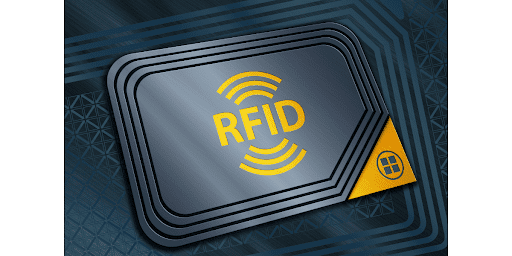Today’s most successful businesses are data-driven. By gathering and analyzing data on a wide range of business activities, they can obtain the insights needed to develop better products and market them more successfully. They also leverage data to know who their customers are, what products they need, and what they are willing to pay for those products.
For retail businesses striving to become more data-driven, radio frequency identification (RFID) technology is an excellent resource. By deploying RFID tags in various settings, companies can gather the data they need to build more informed, efficient, and profitable business processes.
“RFID technology plays a key role in bringing new levels of efficiency and innovation to retail businesses,” says Joseph A. Schlossberg, VP of Global Sales at Sourcing Solutions International. “When utilized at the source of manufacturing, RFID provides retailers insights across the entire supply chain, within retail operations, and into consumer behavior. Those who harvest the data RFID provides have the business intel they need to increase profitability and gain a competitive edge.”
Schlossberg has a decade of experience providing retail businesses with solutions that improve productivity, efficiency, and sustainability. Sourcing Solutions International is a one-of-a-kind supplier that manufactures hangers, labels, and other packing products for the retail apparel industry. The RFID-enabled tags Sourcing Solutions International provides can aid in loss prevention, anti-counterfeiting, and other retail applications.
“Brands and manufacturers alike can benefit in a multitude of ways from deploying RFID technology,” Schlossberg shares. “Those that adopt the technology gain operational efficiency and eliminate order inaccuracies, both of which are enhancements that can save millions of dollars each year in costly chargebacks.”
Table of Contents
The technology behind RFID
RFID tags are fitted with chips that store data and, through a small antenna, transmit that data through radio waves. RFID readers trigger the transmission of data and then receive and process the data.
Access control ID badges are a common example of a practical application of RFID technology. Businesses regularly use badges to grant employees access to areas limited to authorized personnel. The RFID reader triggers the tag in the badge to transmit data that the reader verifies before providing access.
Several features have contributed to the widespread adoption of RFID-empowered devices, including the low costs associated with obtaining, deploying, and reading tags. Another feature is their simplicity and flexibility. RFID devices’ small size and ease of use have inspired a wide range of applications, from identification and tracking of pets to library book lending to contactless traffic toll cards.
Using RFID in retail
Tech-savvy retailers use RFID in many ways. One of the most common is for inventory and supply chain management. By attaching RFID tags to incoming inventory, retailers can track products in real time. This practice increases the accuracy and availability of inventory counts, decreasing the risk of running low on in-demand items.
“Today’s consumers expect businesses to have ready access to information on their products,” Schlossberg says. “They want retailers to be able to instantly provide any information they seek. Whether knowing where to find a product they saw online, providing updates on when unavailable products will be restocked, or offering information that can be used for price comparisons, consumers expect retailers to participate in the information economy. RFID technology empowers retailers to meet those types of expectations.”
RFID can also be used to streamline the checkout process. This includes enabling simple self-checkout processes in which an entire cart can be scanned simultaneously instead of requiring the barcode on each individual item to be scanned. If items are inadvertently — or purposefully — excluded from the scanning and payment process, RFID scanners can detect those items and alert store personnel before they leave the store.
As advancements in artificial intelligence provide businesses with greater analytical capabilities, the data gathered through RFID tags becomes even more valuable. The inventory tracking that RFID empowers can fuel predictive analytics that helps businesses improve their ordering and stocking strategies. Smart shelves using RFID technology can gather data on customer interactions to empower targeted promotions and personalized marketing.
“Retailers around the world have discovered the power of RFID and are adopting new tools that leverage the technology,” Schlossberg explains. “These tools contribute to their success by increasing operational efficiencies and reducing losses associated with slippage and logistics snags. When used properly, RFID technology can even increase a business’s ability to forecast trends and provide the type of intelligent service that drives enhanced brand loyalty. In a world of ever-increasing consumer expectations, RFID gives retailers the tools they need to succeed.”

